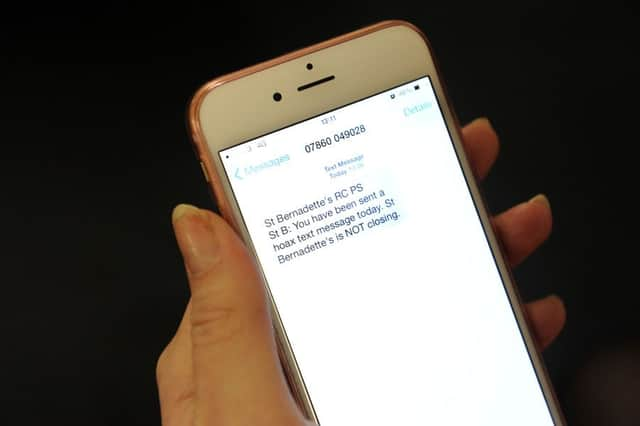MSPs lobbying bill to cover texts and emails


Electronic communications had initially escaped the terms of a new Lobbying Bill, prompting an angry backlash from camapign groups. But Stewart Stevenson, who convenes Holyrood’s standards committee, said the Bill is likely to be amended to include electronic communications.
“In the informal discussions that the committee has had with itself, the bill is unlikely to survive in its present form in relation to just oral communication - i just don’t think the committee feels that,” he said as MSPs took evidence on the measures.
Advertisement
Hide AdAdvertisement
Hide Ad“We haven’t come to a formal position so I don’t carry the weight of our making a decision, but I think the Government is already on a warning on that one and is aware of that.”
Labour MSP Neil Findlay, who initiated the calls for more transparency with a members Bill at Holyrood hit out at the prospect of electronic communications being excluded.
He described the Bill as a “travesty” compared to the initial plans he put forward.
“The Bill appears to be living in the 18th or 19th century - it hasn’t realised that the telephone and the computer has been invented, that we do things like conference calls and the like and there’s a whole new range of modern communications other than people turning up in top hats and tails to speak to one another face to face.
“The Bill has to recognise that.”
He added: “As more powers come to this Parliament, more lobbying comes - that’s just an inevitability.
“This is a preventative measure that we should be putting in to prevent any scandal emerging or any wrongdoing.”
Willie Sullivan of the Electoral Reform Society accepted that it may be too “onerous” to record every email sent, but said it would be enough to record that contact has been made with particular lobby groups.
The proposed legislation also contains major “blind spots”, MSPs heard.
Advertisement
Hide AdAdvertisement
Hide AdAndy Myles of Scottish Environment Link said that key Government decisions are often taken by civil servants and this group is often the “target” of lobbing along with special advisors. But both groups will be escape the provisions of the Bill.
“I think these are blind spots,” he said.